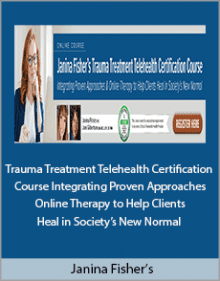Subtotal: $57.00
Robert Melillo – Integrative Therapy for Neurodevelopmental Disorders: Connecting Primitive Reflexes and Brain Imbalances to Polyvagal Theory to Improve Learning Behavior and Social Skills
Original price was: $219.99.$43.00Current price is: $43.00.
Based on 20 years of clinical experience and cutting-edge brain science, Dr. Melillo will teach you new and innovative therapy techniques that connect motor development to cognitive development, and examine the relationship to early milestones and retained primitive reflexes.
- Description
- Reviews (0)
- More Products
Description
Description
Robert Melillo – Integrative Therapy for Neurodevelopmental Disorders: Connecting Primitive Reflexes and Brain Imbalances to Polyvagal Theory to Improve Learning, Behavior and Social Skills
Description
Motor, sensory, behavioral, academic, digestive, immune and autonomic dysregulation issues are all seen in various combinations and degrees in neurobehavioral disorders such as ADHD, Autism, learning disabilities, behavioral problems, and social skills deficits.
But, why? What is the link? Most experts believe that these disorders are connected to one another. How? In this recording, Dr. Melillo will answer these questions in the most practical way.
Based on 20 years of clinical experience and cutting-edge brain science, Dr. Melillo will teach you new and innovative therapy techniques that connect motor development to cognitive development, and examine the relationship to early milestones and retained primitive reflexes. You will learn to tie all of this together with the Polyvagal Theory, brain hemisphericity and a holistic understanding of how the brain and the hemispheres regulate everything. You will learn techniques and tools that translate into clinical success no matter what the condition or severity.
With the rise of developmental neurobehavioral disorders and the overwhelming wide spectrum of related symptoms, understanding the root cause of neurobehavioral and learning disorders is essential to successful treatment.
From this recording, you’ll learn:
- Techniques to identify and remediate Polyvagal issues, retained primitive reflexes and a wide variety of behavioral, learning and social issues
- Strategies to quickly and effectively inhibit primitive reflexes and promote the development of postural reflexes
- Tools to asses and promote balance in postural, oculomotor and vestibular systems
- Assessments for motor, sensory, academic, cognitive and behavioral skills
- Sensory, motor, cognitive and behavioral techniques to promote brain integration
- Nutritional and simple dietary assessments and interventions
Handouts
Outline
DEVELOPMENTAL NEUROLOGY OVERVIEW
- Epidemiology of mental health, educational, and neurobehavioral disorders
- Movement and brain development
- Brain development through segregation, integration, and localization of networks
- Primitive and postural reflex development and retention, plus the relationship to brain development
- Brain asymmetry, development, function, and integration of the hemispheres, plus the relationship to learning disabilities, behavioral
- disorders and socialization issues
ASSESSING AND REMEDIATE RETAINED PRIMITIVE REFLEXES
- What are primitive reflexes? Why and how do they develop?
- Assess primitive reflexes in infants, children, and adults
- Symptoms associated with specific primitive reflex retention
- Asymmetry of primitive reflexes and the relationship to brain imbalances, ADHD, dyslexia
- HANDS-ON LAB: Remediation exercises for primitive reflexes
- CASE STUDY: Adult female with multiple retained primitive reflexes, history of dyslexia, depression, digestive issues, and syncope
PRACTICAL IMPORTANCE OF THE POLYVAGAL THEORY IN LIFE AND IN CLINICAL PRACTICE
- Polyvagal theory and evolution of the autonomic system
- Fear paralysis reflex, the Moro reflex, and both the parasympathetic and sympathetic nervous systems development
- Relate movement and primitive reflexes with Polyvagal Theory
- Autonomic and hemispheric regulation of immune system, gut function, and other issues
- Assess autonomic development, heart rate variability, and autonomic dysregulation
- Connect brainstem development, the development of the social engagement system, and attachment disorders
- HANDS-ON LAB: 35 ways to stimulate the Vagal system
- CASE STUDY: Child with ADHD, retained Moro reflex, and abnormal heart rate variability
- CASE STUDY: Patient with autonomic imbalance and autism
HEMISPHERIC DOMINANCE VS HEMISPHERIC WEAKNESS
- Right brain vs left brain functions
- Why and how the right and left brain become specialized
- How imbalances can develop
- How imbalance produces specific symptoms
- HANDS-ON LAB: Testing for brain imbalances
- Cognitive style profile
- Hemispheric checklist
- Postural hemispheric exam
- Cranial nerve exam
- Develop specialized hemispheric-based treatment to restore balance
- CASE STUDY: Patient with dyslexia, learning disabilities and retained primitive reflexes
ATTACHMENT, POLYVAGAL SYSTEM, AND HEMISPHERIC IMBALANCE
- Understanding attachment and behavior
- Relate attachment with movement and discover the subconscious way we form and maintain relationships, and how this can affect us our whole life
- How the brain hemispheres contribute to attachment
- Functional neurology of human behavior, relationships and emotions
- HANDS-ON LAB: Use the adult attachment inventory as a diagnostic tool
- HANDS-ON LAB: Target functional neurology networks diagnostically and therapeutically
- CASE STUDY: Patient with reactive attachment disorder and ADHD
Faculty

ROBERT MELILLO, MS, MNeuroSci, DC, PhD (C) DABCN, FACFN, FABCDD, is a world-renowned expert in developmental functional neurology, brain imbalances, hemispheric integration and the diagnosis and correction of most neurobehavioral disorders and learning disabilities. He has graduate degrees in clinical rehabilitation neuropsychology, neurology, neuroscience, and chiropractic. Dr. Melillo is a prolific brain researcher, having authored five best-selling books, including Disconnected Kids, 50 peer-reviewed papers, and a major textbook Neurobehavioral Disorders of Childhood: An Evolutionary Perspective. He created Brain Balance Achievement Centers, which has approximately 150 centers and has helped tens of thousands of families.
Dr. Melillo has presented at numerous clinical and scientific conferences around the world and has taught his own course in a post graduate level for over 20 years. He is an associate professor of Developmental Disabilities at National University of Health Sciences, as well as cofounder and past president of the International Association of Functional Neurology and Rehab. Due to Dr. Melillo’s authority in the field, he has been featured in documentaries, appeared in thousands of radio and TV interviews, and hosts a TV show, radio show, and webseries.
Financial Disclosure:
Financial: Robert Melillo is cofounder of the International Association of Functional Neurology and Rehab. He is an associate professor at National University of Health Sciences. He is an author for Penguin Publishing and receives royalties. Dr. Melillo receives a speaking honorarium from PESI, Inc.
Non-financial: Robert Melillo has no relevant non-financial relationship to disclose.
Reviews (0)
Be the first to review “Robert Melillo – Integrative Therapy for Neurodevelopmental Disorders: Connecting Primitive Reflexes and Brain Imbalances to Polyvagal Theory to Improve Learning Behavior and Social Skills”
You must be logged in to post a review.
More Products
-
James S. Gordon – The Transformation: Discovering Wholeness and Healing After
Original price was: $31.00.$11.00Current price is: $11.00. Buy now -
-
Jesper Nissen – Cloud Stacking SEO Course
Original price was: $147.00.$38.00Current price is: $38.00. Buy now -
Dain Heer – Activating Your Awareness and Busting The Lies of This Reality
Original price was: $127.00.$36.00Current price is: $36.00. Buy now -






















Reviews
There are no reviews yet.